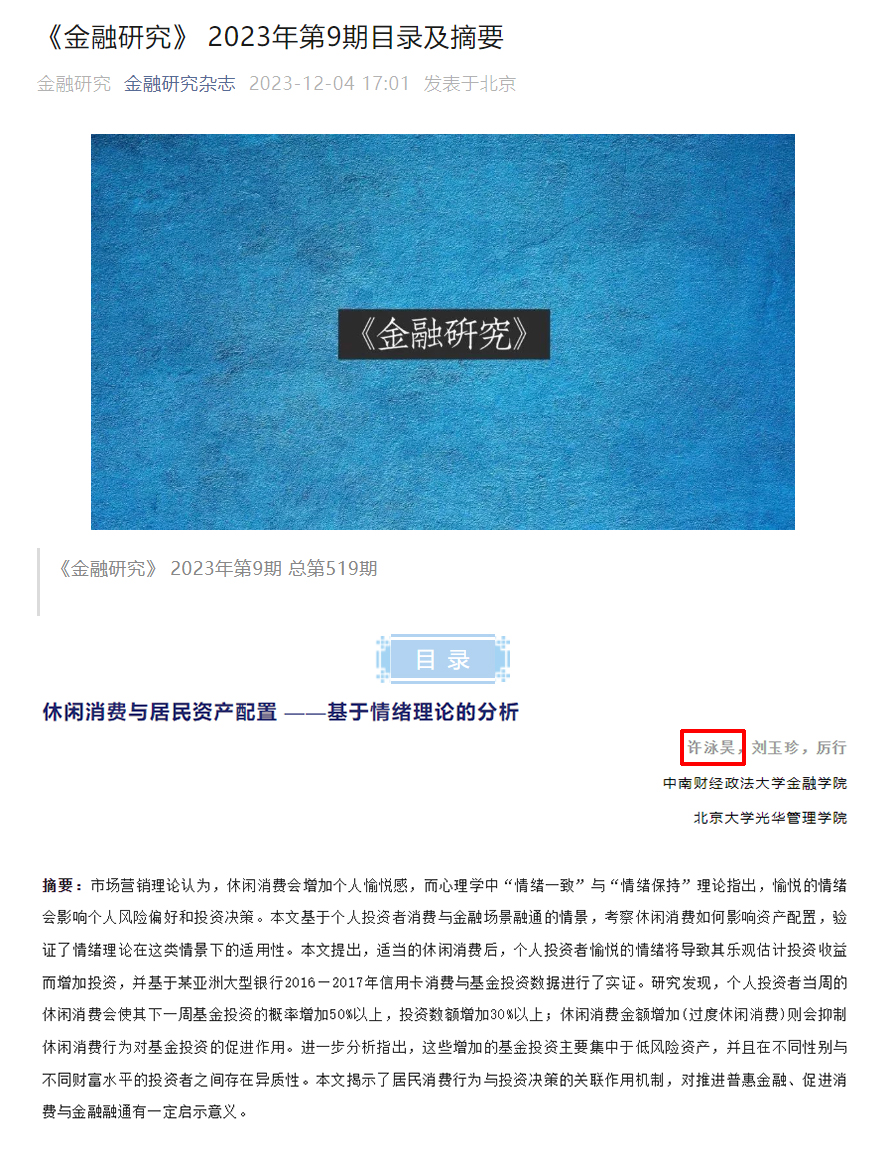Dr. Yonghao Xu, a researcher of the base, has published a collaborative paper titled "Leisure Consumption and Resident Asset Allocation - An Analysis Based on Emotional Theory" in the Financial Research.Financial Research is a formal publication of China's domestic and foreign public issues, which is hosted by the People's Bank of China and sponsored by the China Finance Association. It mainly reflects the dynamics and development of the financial market, publicizes China's financial policies, and introduces the latest financial theoretical research results.
Abstract:
Marketing theory suggests that leisure consumption will increase personal happiness, while the theories of "emotional consistency" and "emotional maintenance" in psychology point out that happy emotions will affect personal risk preferences and investment decisions. Based on the scenario of personal investors' consumption and financial scenario integration, this article examines how leisure consumption affects asset allocation, and verifies the applicability of emotional theory in such scenarios. This article proposes that after appropriate leisure consumption, personal investors' happy emotions will lead them to optimistically estimate investment returns and increase investment. An empirical study based on the credit card consumption and fund investment data of a large Asian bank from 2016 to 2017 shows that the weekly leisure consumption of individual investors will increase the probability of their fund investment by more than 50% and the investment amount by more than 30% in the following week. Increased leisure consumption (excessive leisure consumption) will inhibit the promotion of leisure consumption behavior on fund investment. Further analysis indicates that these increased fund investments are mainly concentrated in low-risk assets, and there are differences between investors of different genders and wealth levels. This article reveals the correlation mechanism between residents' consumption behavior and investment decisions, which has certain enlightenment significance for promoting inclusive finance and promoting consumption and financial integration.

Teacher profile
XU Yonghao, lecturer, School of Finance, Zhongnan University of Economics and Law. Bachelor of Mathematics and Applied Science from the School of Mathematical Sciences, Peking University; Bachelor of Economics from the National School of Development, Peking University; Doctor of Finance from Guanghua School of Management, Peking University. After graduation in 2021, he has joined Zhongnan University of Economics and Law as a lecturer in the School of Finance. His research focuses on finTech, Behavioral Finance, Household Finance and Asset Pricing. His research has been published in Economics Letters and Management World.
